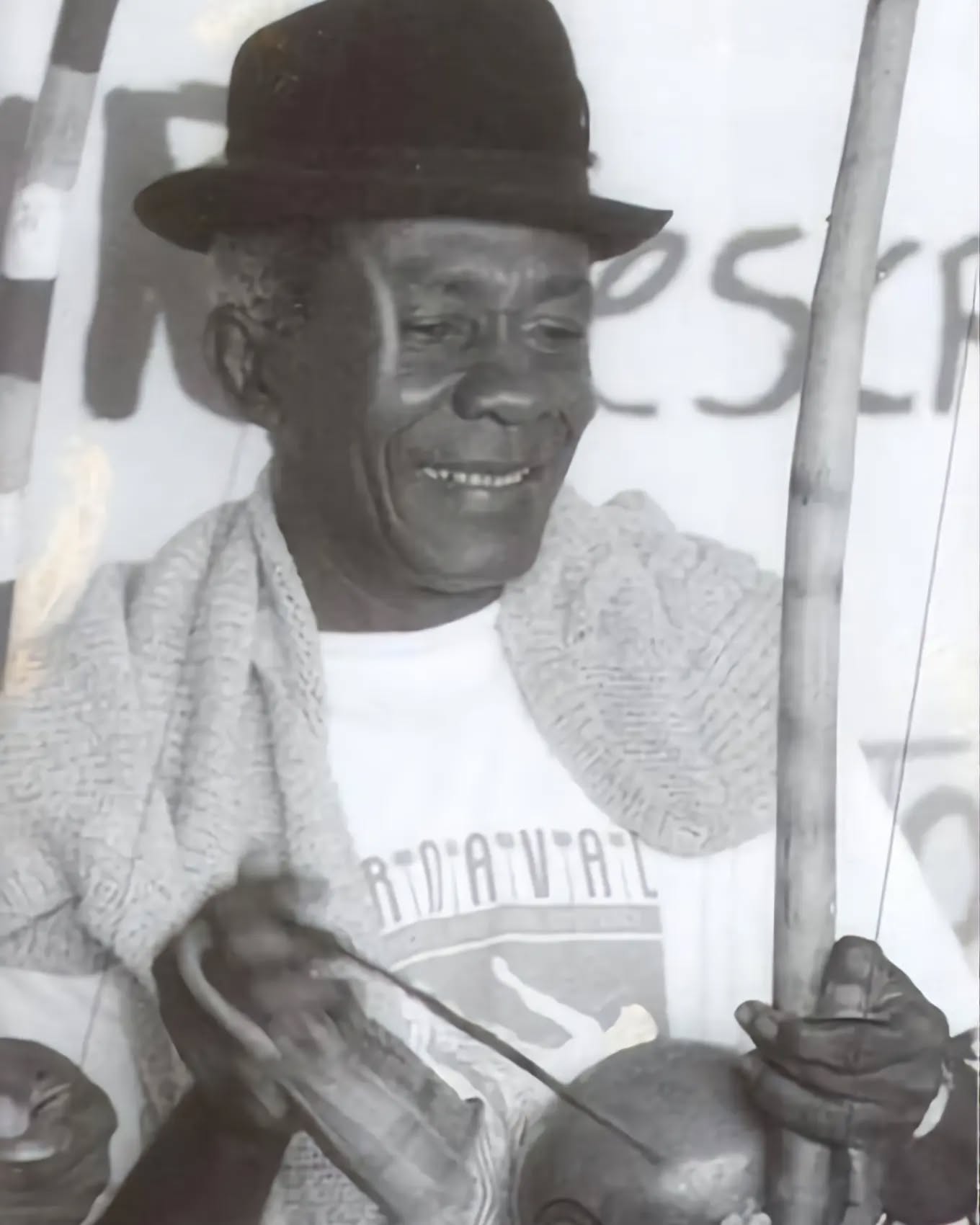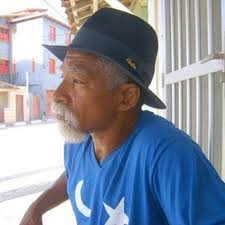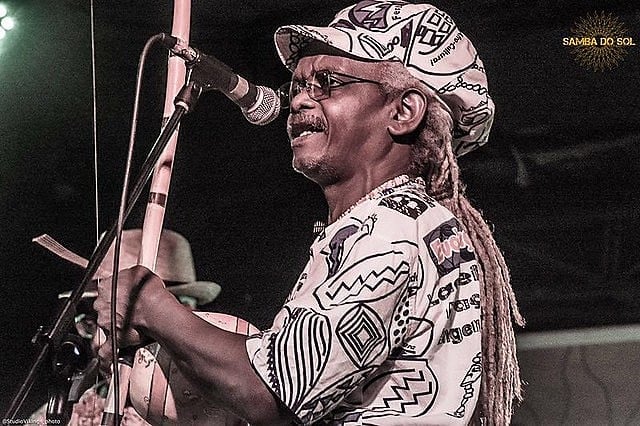Mestre Mestre Bobó
- Lived in: Salvador, Bahia, Brazil
- Date of Birth: 25-Apr-1925
- Date of Death: 08-Jul-0004
- Learned from: Benedito Carroceiro
- Capoeira Style: Angola
Biography:
Mestre Bobó, born Milton Santos on March 25, 1925, in Salvador, Bahia, remains an iconic figure in the world of Capoeira Angola and the samba culture of Brazil. Emerging from humble beginnings, he worked as a fisherman, shoeshiner, and construction laborer, yet his heart always belonged to the rhythms and movements of capoeira and samba. His childhood nickname, “Bobó,” likened him to a small local fish, a name that would later become synonymous with mastery, grace, and the spirit of Bahian capoeira.
In the 1950s, Mestre Bobó began his journey in Capoeira Angola, quickly gaining recognition for his agility, finesse, and deep understanding of the art’s malícia and mandinga. On December 26, 1962, he founded the Academia de Capoeira Angola Cinco Estrelas in Salvador, where he nurtured more than 40 students of all ages, fostering a generation of capoeiristas who would carry forward the traditions he so cherished. His rodas, often held at Dique Pequeno do Tororó, became legendary gatherings, blending skill, playfulness, and the social vibrancy of Bahia.
Beyond capoeira, Mestre Bobó was a passionate sambista and organizer, coordinating performances for samba schools such as the tri-champion Diplomata de Amaralina, where he seamlessly connected Afro-Brazilian music and movement. His influence extended internationally, with notable visits to the United States in 1985, sharing the art and energy of Capoeira Angola with audiences in Los Angeles and New York.
Mestre Bobó’s legacy is also defined by his mentorship of future masters, including the likes of Mestre Lua de Bobó and Mestre Môa do Katendê. Through his teachings, recordings, and collaborations—such as his participation in Mestre Jelon Vieira’s 1989 album “Capoeira: Afro-Brazilian Art Form”—he ensured that Capoeira Angola would flourish both in Brazil and abroad.
Despite his accomplishments, Mestre Bobó lived modestly, valuing family and community above wealth, once stating, “In capoeira, you do not earn money, but you earn friendship.” He raised five children on his own, passing down not only the art but the principles of humility, dedication, and generosity.
Mestre Bobó passed away on July 8, 1994, leaving behind a legacy that continues to inspire capoeiristas, sambistas, and all who value the rich cultural tapestry of Bahia.


